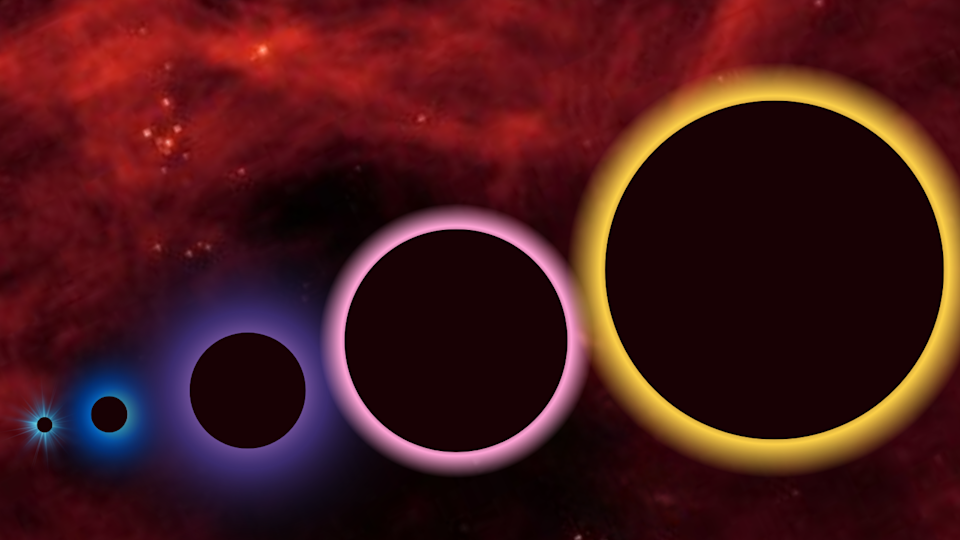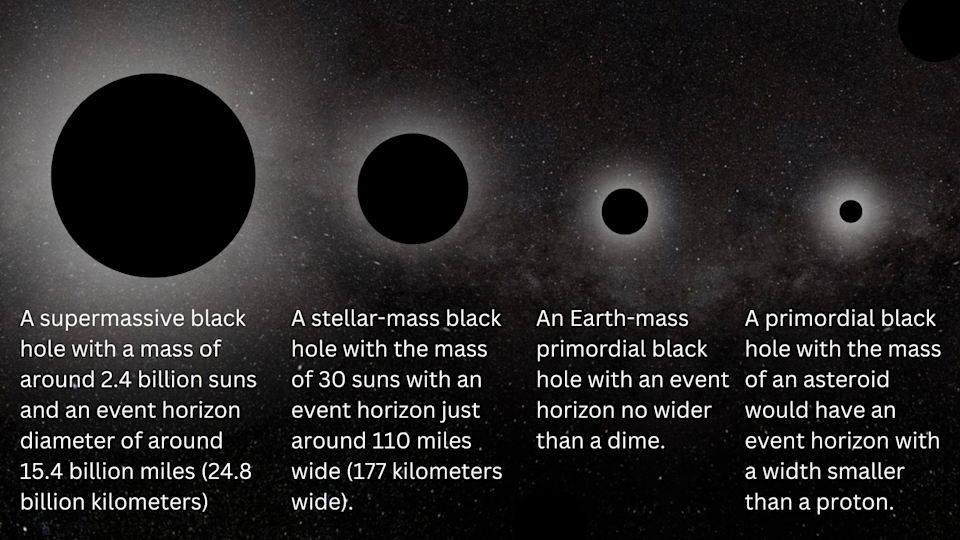Primordial Black Holes: The Missing Link in Supermassive Black Hole Formation
A new study has shed light on a long-standing problem in modern cosmology: how supermassive black holes could have grown to be millions or billions of times more massive than the sun within the first billion years of the universe's existence. The discovery of more and more supermassive black holes by NASA's James Webb Space Telescope (JWST) has made this problem even more pressing. However, the processes previously proposed to explain their growth, such as rapid matter accretion and mergers between larger and larger black holes, should take more than a billion years to produce a supermassive black hole.

The research team, led by John Regan, a Royal Society University research fellow at Maynooth University in Ireland, suggests that primordial black holes could have given early supermassive black holes a head start in this race. These hypothetical black holes are proposed to form directly from overdense pockets in the soup of steaming-hot matter that filled the universe in the first second after the Big Bang.
Primordial black holes have several advantages over astrophysical black holes. Firstly, their mass is not restricted by how massive a star can get before it dies, as is the case with stellar-mass black holes. This means they can be more massive to begin with compared to astrophysical black holes and may be able to settle more easily into galactic centers, where they can rapidly grow. Secondly, primordial black holes don't emit energy and don't "go 'nova," eliminating the hindrance that negatively impacts the prospect of supermassive black hole growth from stellar-mass black holes.
In the simulation performed by Regan and colleagues, primordial black holes needed to grow by accreting matter, with black hole mergers taking a backseat in the process. "Matter in the early universe is mostly composed of hydrogen and helium," Regan explained. "These primordial black holes are expected to mostly grow by accreting hydrogen and helium. Mergers with other primordial black holes may also play a role, but accretion is expected to be dominant."

For the matter accretion of primordial black holes to be efficient enough to result in the creation of supermassive black holes, these objects need to be able to rapidly gobble up matter. That means making their way to regions of the universe where matter congregates—namely, the center of galaxies, which also happens to be where supermassive black holes lurk in the modern epoch of the cosmos. "For this, primordial black holes need to sink to the center of a galaxy," Regan said. "This can happen if there are enough primordial black holes. Only a few have to get lucky!"
Of course, these findings are based on simulations, so there is a long way to go before this theory can be confirmed. One line of observational evidence for this theory would be the detection of a massive black hole in the very early universe, prior even to 500 million years after the Big Bang. Another possible line of observational evidence would be the detection of a black hole with a mass smaller than three times that of the sun in the modern-day universe. That's because no black hole so small could have formed from the supernova death and collapse of a massive star, indicating this diminutive black hole grew from a primordial one.
Priordial Black Holes: The article effectively establishes a case for the importance of primordial black holes as missing links in understanding supermassive black hole formation, providing groundbreaking insights into their role within astrophysical scenarios.
"Remarkably informative探讨了原始黑洞在巨大恒星质量黑洞形成过程中的潜在关键角色,为天体物理学界提供了一个引人入胜的未解之谜——Primordial Black Holes: The Missing Link in Supermassive Black
Hole Formation,通过深入的科学推理解构和假设性分析描绘了一幅关于宇宙早期奇异现象如何塑造现今巨型星系核心的新图景。"
Primordial Black Holes: The uncanny Missing Link hypothesis offering a tantalizing explanation for the formation processes of Supermassive Black Holes proposes an exciting new frontier in astronomical research.
Primordial Black Holes: The Missing Link in Supermassive Black Hole Formation presents a compelling theoretical framework linking the cosmos' earliest moments to its largest mysteries, paving new avenues for understanding galaxy formation and evolution.
Exploring the uncanny realm of primordial black holes as missing links in supermassive hole formation adds a layer to our understanding that challenges current physical theories—a thrilling perspective on the origins and secrets hidden within cosmic dynamics.














